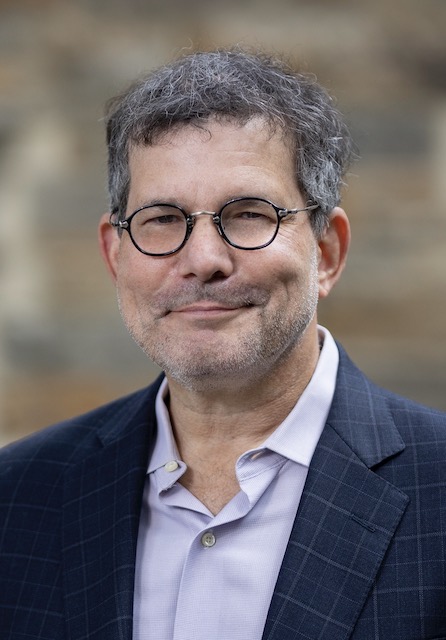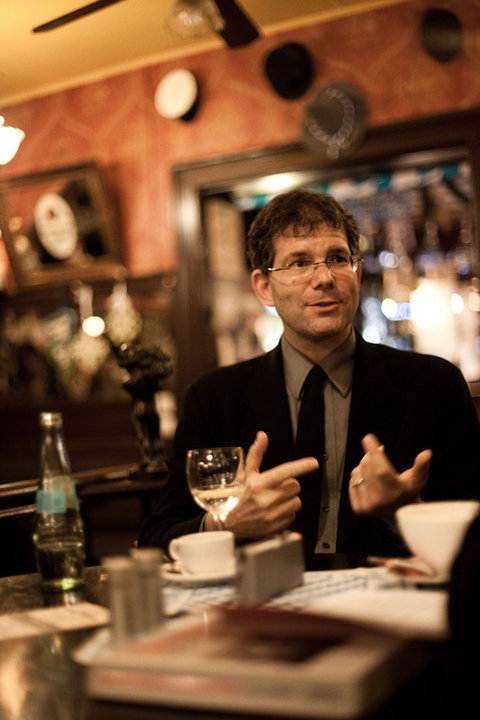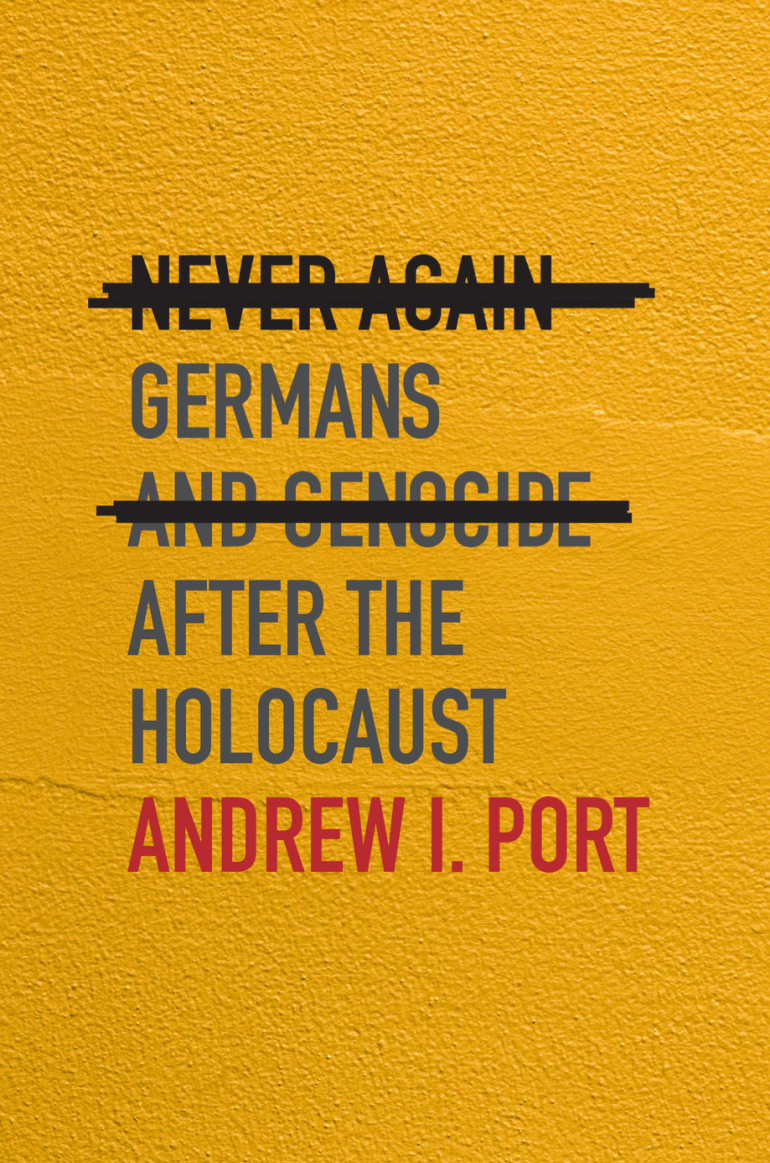
The phrase “never again” is often used in Germany with regard to the Holocaust, but Wayne State University Professor of History Andrew Port wanted to dive deeper into what that meant for Germans. The result is his latest book: Never Again: Germany and Genocide after the Holocaust.
The book examines German reactions to genocide in other parts of the world after 1945, with a focus on Cambodia, Bosnia and Rwanda.
“What I wanted to see is how Germany’s memories of their own past have influenced how they’ve responded to genocides that took place after World War II,” Port said. “It’s a study about memory, foreign policy, human rights, humanitarian aid, humanitarian intervention and all sorts of related issues.”
Port lived in Germany in the early and mid-1990s, and said part of the inspiration was his experience there during that time.
“I was in Germany when they first started reporting about ‘concentration camps’ that were supposedly being set up in Bosnia,” Port said. “I just couldn't believe that concentration camps were being set up in Europe in 1992. And I was really interested in how Germans responded to reports like that, given the kind of language that was being used. That was more than 30 years ago, but that’s where the initial idea for the book came from. I was really impressed when I lived there and met Germans my age, how much they knew about their past and how often that was a topic of discussion.”

Port interviewed more than 60 people for the book and said it took him years to research and write because he wanted to be as thorough as possible. That seems to have paid off, as the book has received positive remarks from fellow academics. Samuel Moyn of Yale University calls Never Again, “The most important study of memory, politics and the ongoing construction of public norms written in a long time.”
“I conducted interviews with people ranging from a doctor in Hamburg, who had volunteered to help out with Cambodian refugees in 1979, to the former chancellor of Germany, Helmut Schmidt,” Port said. “I got to interview a lot of diplomats, journalists and human rights activists. And that was really rewarding; I really enjoyed that part. I tried to make the book as comprehensive as possible, but I also want my writing to be accessible and not too heavy with jargon.”
Port said he feels the way Germany handles its past is admirable and should be an example for other nations.
 “The way the Germans talk about what happened in the 1930s and 1940s, there’s a real sense of responsibility for that, as well as shame,” Port said. “What I find really interesting is that in Germany, across the board politically — from the extreme left to mainstream conservatives — there is a real sense of responsibility for the past and a willingness to look it in the eye and deal with it. They do a much better job of dealing with the dark side of their history than other nations do. I think that the German example can be a lesson to Americans and also to the British, Japanese, Italians and all countries that have had — for whatever reasons — a difficult past.”
“The way the Germans talk about what happened in the 1930s and 1940s, there’s a real sense of responsibility for that, as well as shame,” Port said. “What I find really interesting is that in Germany, across the board politically — from the extreme left to mainstream conservatives — there is a real sense of responsibility for the past and a willingness to look it in the eye and deal with it. They do a much better job of dealing with the dark side of their history than other nations do. I think that the German example can be a lesson to Americans and also to the British, Japanese, Italians and all countries that have had — for whatever reasons — a difficult past.”
Port has taught at Wayne State since 2003 and said the part he still enjoys the most is interacting with students.
“I like the fact that there are a lot of non-traditional students here at Wayne State and people who are out there working and have other jobs,” Port said. “I’m really impressed with how people mange that. When I went to college, I had the luxury of focusing just on school for four years. That’s not the case with a lot of our students.
“Most of my students are really engaged and have very perceptive things to say. The students are probably the best part about teaching here.”
Port has taught The World Since 1945 at Wayne State every year he’s been here and the course has evolved over the years. He writes in the acknowledgements of Never Again that the course “sparked my interest in connections between Germany and other parts of the globe. Many academics emphasize how their own research informs their teaching. In my case, the opposite has also been true.
“I offer courses on 20th-century Germany and on modern Europe as well,” Port said. “World History since 1945 is a Gen Ed course that attracts high enrollments, so it's kind of a fan favorite. It exposes me to so many students, which I’ve enjoyed. When students are in high school, they rarely cover the period after 1945 in world history, so for many, this is their first exposure.
“I put a lot of emphasis on getting them to think about asking questions and how one evaluates evidence in a way that's fair to everybody involved,” he added. “So, it's more thinking about history and about the issues that are at stake than just the facts. Anyone can get facts from a book, but thinking and putting things together is very difficult to teach. But I think it's the most valuable part of what I do.”
For more information or to order Never Again: Germany and Genocide after the Holocaust please visit the Harvard University Press' web site.
